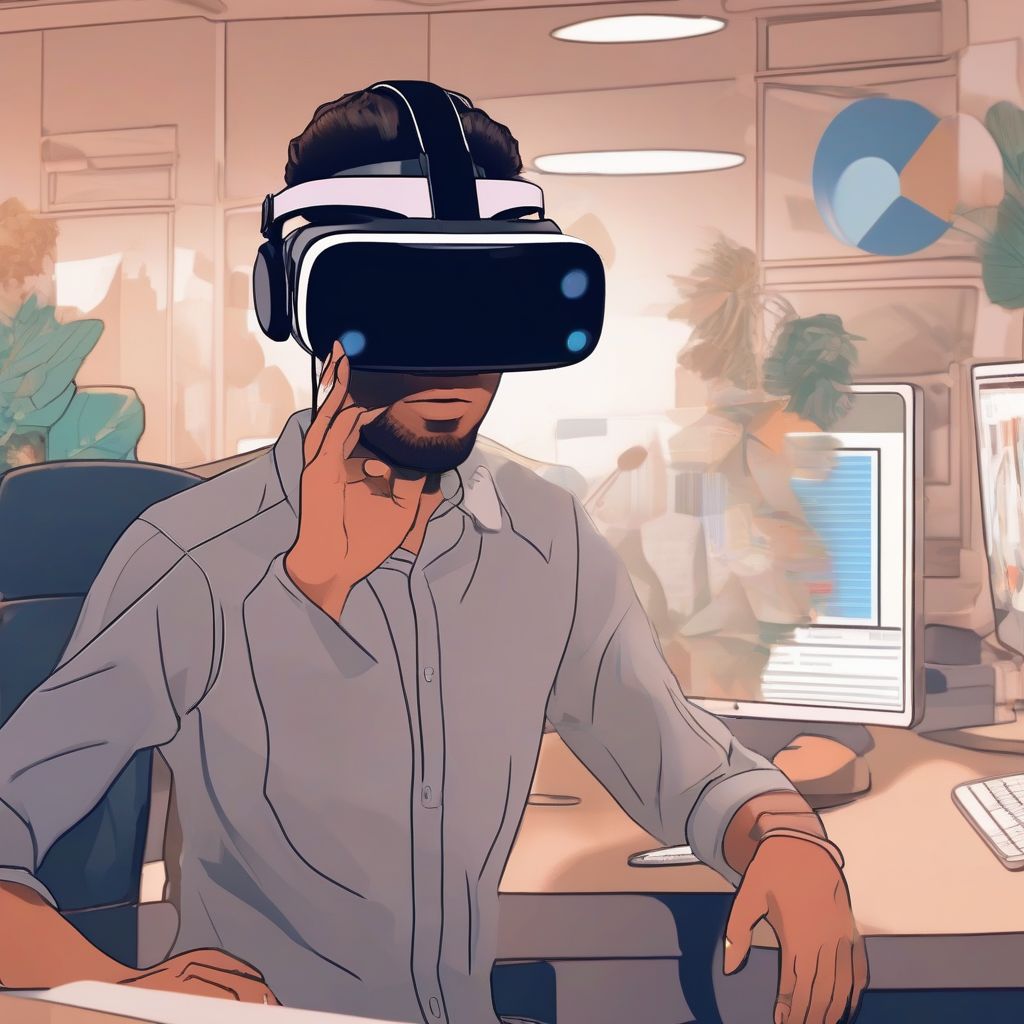Imagine stepping into someone else’s shoes, not just metaphorically, but virtually. You can feel the weight of their responsibilities, navigate challenging social situations from their perspective, and truly understand the impact of your actions on others. This is the transformative potential of virtual reality (VR) in developing soft skills and empathy.
Beyond Entertainment: VR as a Powerful Learning Tool
While often associated with gaming, VR technology has evolved into a powerful tool for education and training, particularly in the realm of soft skills development. Unlike traditional learning methods like lectures or textbooks, VR creates a dynamic, interactive environment that immerses learners in realistic scenarios. This immersive quality allows individuals to experience situations firsthand, fostering deeper learning and behavior change.
 VR Headset for Soft Skills Training
VR Headset for Soft Skills Training
Building Empathy Through Virtual Experiences
Empathy, the ability to understand and share the feelings of others, forms the bedrock of successful interpersonal relationships. VR allows us to step outside our own perspectives and into the shoes of others, fostering a deeper understanding of their emotions and experiences.
Here’s how VR cultivates empathy:
- Perspective-taking: VR simulations can place you in the shoes of someone facing discrimination, cultural differences, or personal challenges, allowing you to experience the world from their point of view.
- Emotional Response: By simulating real-life scenarios, VR triggers authentic emotional responses, fostering empathy and compassion.
- Reduced Prejudice: Studies show that VR experiences, particularly those simulating interactions with marginalized groups, can reduce implicit bias and promote prosocial behavior.
Honing Essential Soft Skills in a Safe Space
From communication and teamwork to problem-solving and leadership, soft skills are crucial for success in all aspects of life. VR offers a safe and controlled environment to practice these skills without real-world consequences.
Key benefits of VR for soft skills training:
- Realistic Scenarios: Simulated environments mirror real-life workplaces, customer interactions, or social situations, providing valuable experience.
- Interactive Learning: Unlike passive observation, VR requires active participation, encouraging learners to apply skills and make decisions in the moment.
- Immediate Feedback: VR simulations offer real-time feedback on performance, allowing individuals to identify areas for improvement and refine their skills.
The Future of Learning: Embracing the Potential of VR
The integration of VR into education and training programs is still in its early stages, but its potential is undeniable. As the technology becomes more accessible and sophisticated, we can expect to see wider adoption across various sectors.
Here’s a glimpse into the future of VR-powered learning:
- Personalized Learning: Tailored VR experiences can cater to individual learning styles and needs, maximizing learning outcomes.
- Remote Collaboration: VR can bridge geographical barriers, allowing individuals to connect and collaborate in shared virtual spaces.
- Data-Driven Insights: VR simulations generate valuable data on learner behavior and performance, providing insights for personalized feedback and program optimization.
Stepping into a More Empathetic and Skilled Future
VR is not merely a technological advancement; it’s a powerful tool for fostering empathy, sharpening soft skills, and building a more understanding and connected world. As we continue to explore its potential, VR has the power to transform the way we learn, interact, and navigate the complexities of the human experience.
[amazon bestseller=”virtual reality headset”]
Do you believe that VR has the power to create a more empathetic and understanding society? Share your thoughts in the comments below!
